Filter by
# Debug Box
/var/www/htdocs/pustaka-digital/lib/SearchEngine/SearchBiblioEngine.php:688 "Search Engine Debug 🔎 🪲"
Engine Type ⚙️: "SLiMS\SearchEngine\SearchBiblioEngine"
SQL ⚙️: array:2 [ "count" => "select count(sb.biblio_id) from search_biblio as sb where sb.opac_hide=0 and (sb.call_number LIKE :callnumber)" "query" => "select sb.biblio_id, sb.title, sb.author, sb.topic, sb.image, sb.isbn_issn, sb.publisher, sb.publish_place, sb.publish_year, sb.labels, sb.input_date, sb.edition, sb.collation, sb.series_title, sb.call_number from search_biblio as sb where sb.opac_hide=0 and (sb.call_number LIKE :callnumber) order by sb.last_update desc limit 10 offset 80" ]
Bind Value ⚒️: array:1 [ ":callnumber" => "9%" ]

Japan's book donation to the University of Louvain : Japanese cultural identi…
Companion to the exhibition “Japan’s Book Donation to the University of Louvain”, KU Leuven University Library, 28 October 2022 - 15 January 2023 With more than 3,000 titles in almost 14,000 volumes, the 1920s Japanese book donation to the University of Leuven/Louvain constitutes an invaluable time capsule of Japan’s pre-modern culture in all its diversity and richness. A century on, th…
- Edition
- 1
- ISBN/ISSN
- 9789462702288
- Collation
- 296p.; ill.
- Series Title
- -
- Call Number
- 950 JAP s
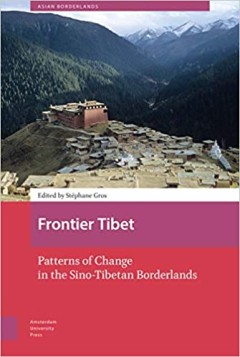
Frontier Tibet : Patterns of Change in the Sino-Tibetan Borderlands
Frontier Tibet addresses a historical sequence that sealed the future of the Sino-Tibetan borderlands. It considers how starting in the late nineteenth century imperial formations and emerging nation-states developed competing schemes of integration and debated about where the border between China and Tibet should be. It also ponders the ways in which this border is internalised today, creating…
- Edition
- -
- ISBN/ISSN
- 9789048544905
- Collation
- 555 p.
- Series Title
- -
- Call Number
- 951.5 FRO S

The Springs Of Democracy : National and Transnational Debates on Constitution…
During the First World War, conflicts between the people’s sacrifices and their political participation led to crises of parliamentary legitimacy. This volume compares British, German, Swedish and Finnish debates on revolution, rule by the people, democracy and parliamentarism and their transnational links. The British reform, although more about winning the war than advancing democracy, rest…
- Edition
- -
- ISBN/ISSN
- 9789522229281
- Collation
- 590 p.
- Series Title
- -
- Call Number
- 940.5 SPR P

Harnessing the Power of the Criminal Corpse
This open access book is the culmination of many years of research on what happened to the bodies of executed criminals in the past. Focusing on the eighteenth and nineteenth centuries, it looks at the consequences of the 1752 Murder Act. These criminal bodies had a crucial role in the history of medicine, and the history of crime, and great symbolic resonance in literature and popular culture.…
- Edition
- -
- ISBN/ISSN
- 9783319779089
- Collation
- x, 273 p.
- Series Title
- -
- Call Number
- 941
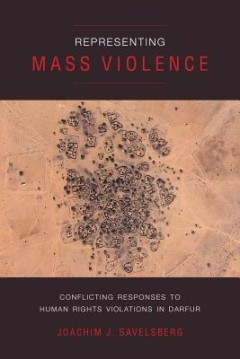
Representing Mass Violence : Conflicting Responses to Human Rights Violations…
How do interventions by the UN Security Council and the International Criminal Court influence representations of mass violence? What images arise instead from the humanitarianism and diplomacy fields? How are these competing perspectives communicated to the public via mass media? Zooming in on the case of Darfur, Joachim J. Savelsberg analyzes more than three thousand news reports and opinion …
- Edition
- -
- ISBN/ISSN
- 9780520963085
- Collation
- xix, 341 p.
- Series Title
- -
- Call Number
- 962.4043
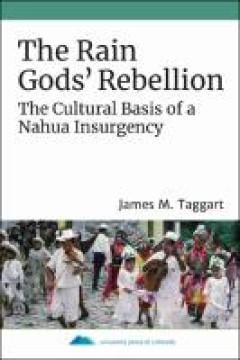
The rain gods' rebellion : the cultural basis of a Nahua insurgency
"The Rain Gods’ Rebellion examines Nahua oral narratives to illuminate the cultural basis of the 1977–1984 rebellion against the local Hispanic elite in Huitzilan de Serdán, Mexico. Drawing from forty years of fieldwork in the region, James M. Taggart traces the sociopolitical role of Nahua rain gods—who took both human and divine forms—back hundreds of years and sheds new light on the…
- Edition
- edision 12
- ISBN/ISSN
- 9781607329503
- Collation
- ix. ;241 p. ;ill.
- Series Title
- -
- Call Number
- 972.48.
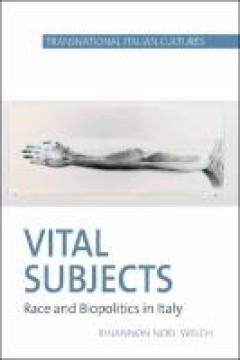
Vital subjects : race and biopolitics in Italy, 1860-1920
Drawing on a range of canonical and non-canonical literary, cinematic and social scientific texts produced in post-Unification Italy, Vital Subjects: Race and Biopolitics in Italy is an interdisciplinary study of how racial and colonial discourses shaped the "making" of Italians as modern political subjects in the years between its administrative unification (1861–1870) and the end of the Fir…
- Edition
- edision 14
- ISBN/ISSN
- 9781781382868
- Collation
- ix. :304 p. ;ill.
- Series Title
- -
- Call Number
- 900. VIT r
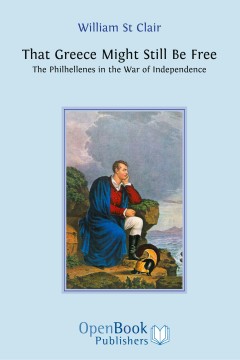
That Greece might still be free; : the Philhellenes in the War of Independence
When in 1821, the Greeks rose in violent revolution against the rule of the Ottoman Turks, waves of sympathy spread across Western Europe and the United States. More than a thousand volunteers set out to fight for the cause. The Philhellenes, whether they set out to recreate the Athens of Pericles, start a new crusade, or make money out of a war, all felt that Greece had unique claim on the sym…
- Edition
- -
- ISBN/ISSN
- 9781906924027
- Collation
- xi, 419p. ; ill.
- Series Title
- -
- Call Number
- 949.506 CLA t
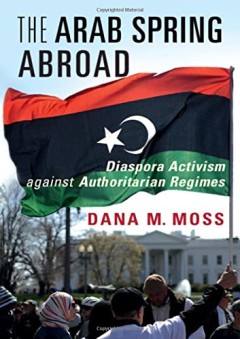
The Arab Spring abroad : diaspora activism against authoritarian regimes
The Arab Spring revolutions of 2011 sent shockwaves across the globe, mobilizing diaspora communities to organize forcefully against authoritarian regimes. Despite the important role that diasporas can play in influencing affairs in their countries of origin, little is known about when diaspora actors mobilize, how they intervene, or what makes them effective. This book addresses these question…
- Edition
- -
- ISBN/ISSN
- 9781009272148
- Collation
- xvii, 270p.
- Series Title
- Cambridge studies in contentious politics
- Call Number
- 909.097492708312 MOS t
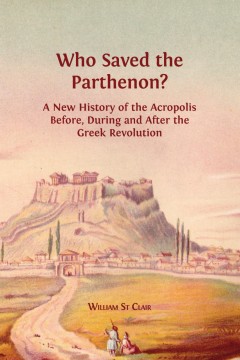
Who saved the parthenon? : a new history of the acropolis before, during and …
In this magisterial book, William St Clair unfolds the history of the Parthenon throughout the modern era to the present day, with special emphasis on the period before, during, and after the Greek War of Independence of 1821–32. Focusing particularly on the question of who saved the Parthenon from destruction during this conflict, with the help of documents that shed a new light on this endu…
- Edition
- -
- ISBN/ISSN
- 9781783744633
- Collation
- xviii, 876p. ; ill.
- Series Title
- -
- Call Number
- 938.5 WIL w
 Computer Science, Information & General Works
Computer Science, Information & General Works  Philosophy & Psychology
Philosophy & Psychology  Religion
Religion  Social Sciences
Social Sciences  Language
Language  Pure Science
Pure Science  Applied Sciences
Applied Sciences  Art & Recreation
Art & Recreation  Literature
Literature  History & Geography
History & Geography